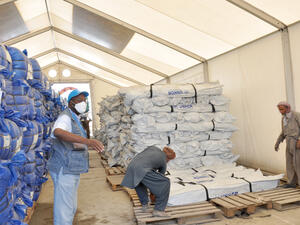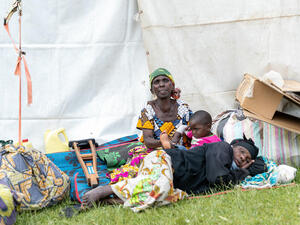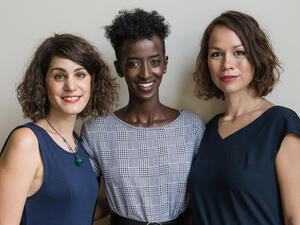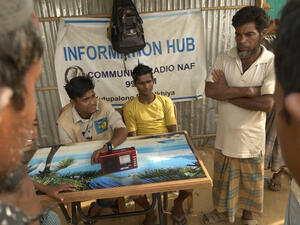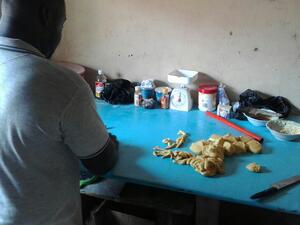UNHCR, Pakistan government start radio show for quake survivors
UNHCR, Pakistan government start radio show for quake survivors
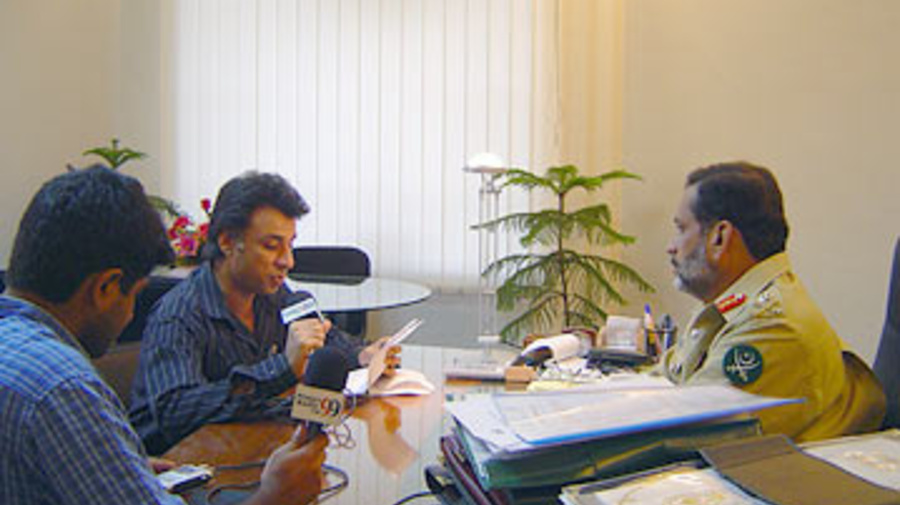
Reporters interview Lt. Gen. Nadeem Ahmed, deputy chief of Pakistan's Earthquake Reconstruction and Rehabilitation Authority for the first programme of "Hemat Javan Hai."
ISLAMABAD, Pakistan, July 19 (UNHCR) - The UN refugee agency and the Pakistan government today launched a radio programme to update people displaced by last year's earthquake in northern Pakistan on issues and policies affecting their return and recovery.
The first programme of "Hemat Javan Hai" ("The Will is Strong") - an interview with Lieutenant General Nadeem Ahmed, deputy chairman of the Earthquake Reconstruction and Rehabilitation Authority (ERRA) - will be broadcast at six in the evening on Pakistan's Power 99 FM radio. It will focus on compensatory issues and can be heard in quake-hit areas and in Islamabad.
"Radio, being one of the most powerful mediums of communication, can not only effectively disseminate timely information, but can also be one of the major sources of behavioural change," said Lt. Gen. Nadeem.
He added that the effective and smooth flow of information to people affected by the massive October 8 quake - which killed more than 70,000 people across the Kashmir region - is one of the ERRA's main priorities so that those affected can get maximum benefit from the government's programmes.
The daily half-hour show, coordinated by UNHCR and the media wing of ERRA, will contain interviews with government policy-makers, reports from quake-hit areas and interviews with aid workers, returnees and people still living in relief camps.
Every Sunday evening, there will be a 90-minute live programme featuring a panel of government officials or other experts responding to queries or complaints by victims of the quake.
"The low literacy rate in some areas means that radio is the most immediate and accessible medium," said Kilian Kleinschmidt, UNHCR's emergency coordinator for the earthquake operation. "But the programme should not turn into a 'complaint' forum. It will take a balanced approach to legitimate problems and queries, to inform the wider public about the situation on the ground and the enormous task of rebuilding shattered lives."
The radio programme also seeks to counter misinformation and rumours while establishing a dialogue between quake survivors and decision-makers in the process of reconstruction and rehabilitation.
Topics of the radio show will include compensation, relocation, livelihood opportunities, and building codes and practices. Land and legal issues, updates on reconstruction and rehabilitation efforts, as well as central- and local-level policies will also be covered.
"The programme is not meant to be a mouthpiece of UNHCR and the government," said Kleinschmidt. "We'll also coordinate messages from other agencies and NGOs. Urgent announcements related to the quake zone can also be made here."
To maximise the reach of the radio programme, UNHCR is planning to help a non-governmental organisation, Internews, to distribute 10,000 radio sets to quake survivors. The refugee agency will also support Power 99 FM radio station in their training workshops for local journalists contributing to the show.
More than 125,000 people have left the earthquake relief camps for their home villages since March this year. Over 30,000 displaced survivors are still living in 59 camps in Pakistan-administered Kashmir and North-West Frontier Province.
By Vivian Tan in Islamabad, Pakistan


